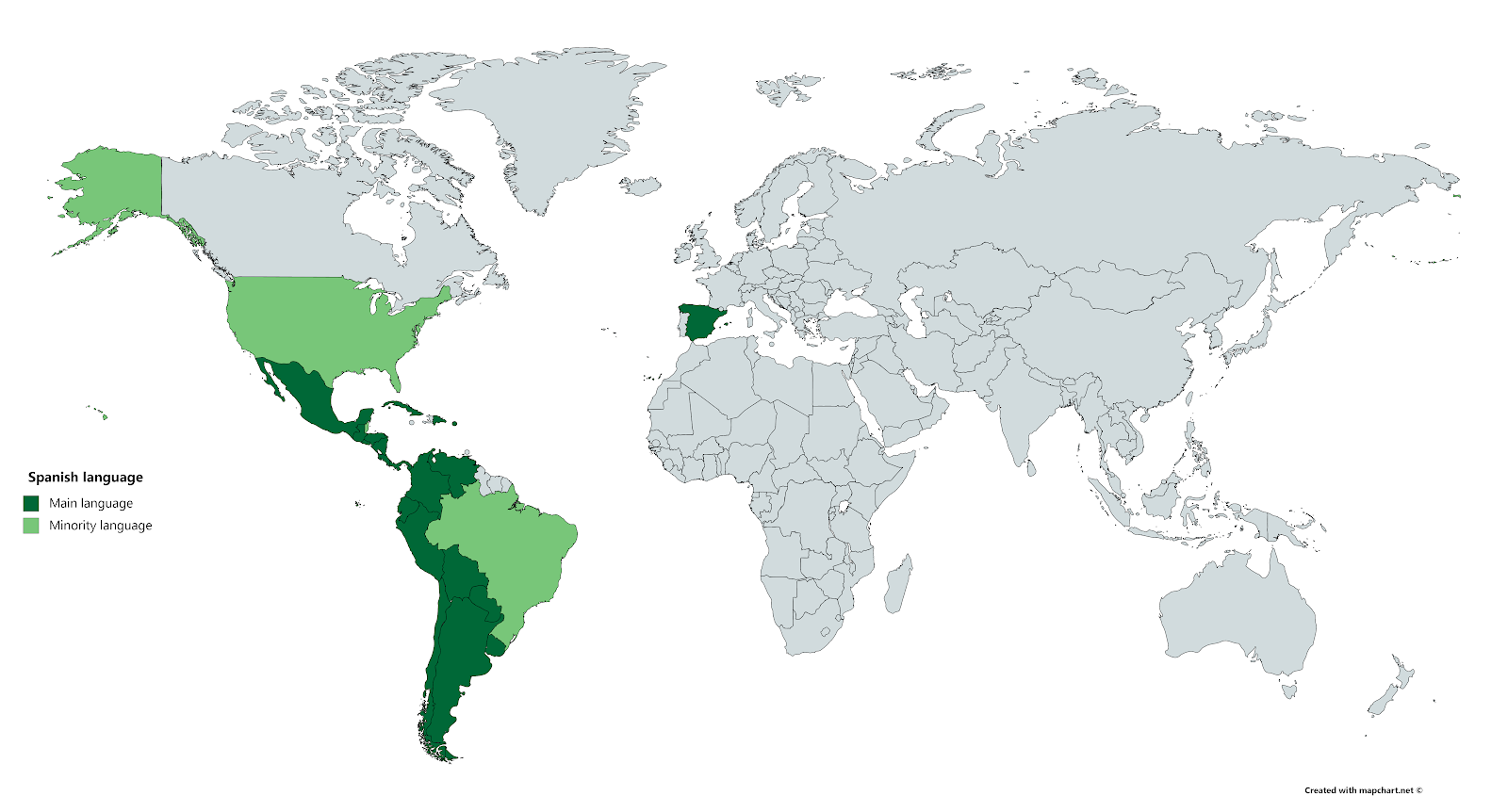
International language barriers can pose significant challenges to businesses looking to expand into new markets. Even experienced companies can run into difficulties with suppliers or partners when language differences create miscommunications that threaten their business plans abroad.
Overcoming international language barriers in every aspect of business will be key as e-commerce continues to explode worldwide. Companies will need to be able to operate in a multitude of languages to do business globally. Not only do companies need to use these languages in their marketing, but they will need to use them to establish a successful logistics operation.
The most important languages for companies to consider, according to Rescue a CEO, are:
-
Simplified Chinese, which is used by 20% of all Internet users
-
Spanish, which has over 500 million speakers
-
German, since Germany is such an influential economy
-
Arabic, which opens up audiences in 28 countries
-
Portuguese, since Brazil is so influential in South America’s regional economy

Regardless of which language(s) your business needs to adapt to in order to grow internationally, there are some basic elements to consider in order to overcome international language barriers related to logistics and shipping.
What Goes Into a Successful International Logistics Operation?
International logistics goes beyond shipping a parcel. Successful international logistics means being able to provide the same level of service to foreign customers compared to the service received by local customers.
Most companies, especially small to medium size businesses, don’t have a headquarters in every market. This means that successful international logistics requires creative problem solving and working with local providers. So, the question becomes, how do you overcome the international language barriers that separate your business from your overseas logistics partners and customers?
Thinking Locally, Translating Globally
The key to excelling in foreign markets is being willing to think about your business locally and to translate quickly and accurately between languages. Nowhere is this latter part more important than in logistics, where processes take place quickly as orders come in 24/7 thanks to the on-demand nature of e-commerce.
Marketing departments are increasingly trying to “localize” their brands. Localization means providing your international customers with a “local” brand experience—the local language, local currency, local domain suffix (.br for Brazil, for example). People often talk about how localizing the company website can create more loyal customers and increase sales, but for an effective international presence your company needs to localize the logistics process as well.
Unless you’re an Apple or a Coca-Cola-sized business, the smartest move when localizing your international logistics is to invest in a relationship with a trustworthy middleman: a third-party logistics company. Since it’s unlikely that you have a large enough group of workers who can effectively communicate in a foreign language, a third-party logistics company with ties to your company’s home country and the target country can help you overcome the logistical challenges generated by international language barriers.

Having spent over 40 years helping companies take their business into Latin America, we’ve assisted our clients with overcoming some of the toughest multi-language logistics problems. Based on this experience, here are five of the most common issues that you’ll likely have to address when doing business abroad.
Finding the Right Local Partners
At the basis of any international business venture is having the right local partners in your foreign markets. From final mile delivery companies to local customer service, much of your logistics and customer-facing interactions are best handled by local people with knowledge of the language and customs. Finding the right local partners can provide a much more friendly brand image and enable you to smooth over logistics issues more effectively when they arise.
According to Jacob Andra with the U.S. Translation Company, “The knowledge of local needs and practices make foreign distribution partners a valuable asset to gaining marketing share for companies operating internationally.”
The problem for many businesses is always, how do you find these partners without knowing the language? Costly international trips with translators are one way.
Another way is finding the right third-party logistics partner who already has established ties to local service providers. Instead of having to vet dozens of local providers, you can vet a handful of third-party logistics companies and save yourself time and money.
As always, do your research into these providers by asking for references from their customers who do business in the region.
Package Tracking
Package tracking is an important part of the logistics process; it allows the seller and the buyer to keep an eye on their goods mid-transit. International shipping can introduce difficulties for U.S. companies when the parcel passes through customs into the destination country.
When you’re shipping to a Spanish-speaking country, the shipping process in that country is most likely tracked in Spanish. Thus, the information coming from these local providers would be fairly useless to a U.S.-based, English-speaking company.
A third-party logistics company can seamlessly pass package and tracking information between multiple languages. For example, at SkyPostal we translate tracking information for you through a proprietary system that provides all the real-time information and mapping you need in English.
Customs Documentation
Customs can be frustrating, even without international language barriers. Some countries rely on the Harmonized System (HS) to create a unique numeric code to identify thousands of different tradable goods, but many Latin American nations have their own classification system. There are many other documents that accompany your goods while going through customs, and oftentimes filling out forms in English is not sufficient.
When importing into Argentina, for example, your commercial invoice must be in Spanish, including the name and description of the goods.
Customs delays are an all-too-common occurrence, but having your paperwork completely filled out in the right language before it ships can save you some major headaches and help you avoid frustrating your customers.
Customer Service
Your international customers deserve the same level of customer service as your local customers. In particular, e-commerce retailers who sell across the globe should invest in localized customer service.
Language differences are the main barrier to providing international customers with great customer service. However, time zone differences should also be considered, as well as standard practices around returning goods in your target market.
When you localize customer service or IT departments, they’re uniquely equipped to help your international customers. But, these international branches of your business can’t operate in isolation; you need a middleman to ensure that your foreign-language-speaking service reps can relay valuable information back to your English-speaking reps.
Data Formatting
Not all data is created equal. Even something as basic as writing the date can vary, causing a lot of confusion. In Latin America (and much of the world), dates are written day/month/year versus the month/day/year format utilized in the U.S.

According to The Institute of Financial Operations, Latin America has progressed recently when it comes to handling logistics data through things like e-invoicing, but such changes can come rapidly: “In Argentina, it came without any advance notice when the country stopped accepting foreign currency on invoices.”
The same source also noted that “Latin America defines strict process standards” for each country compared to the more lax invoicing compliance guidelines of the U.S. and the E.U.
Keeping up with data requirements can be challenging for any company on its own, especially if you’re shipping to multiple Latin American countries that each have their own requirements for the way data is handled.
For all of these issues arising from international language barriers, the simplest solution is utilizing a third-party logistics company.
Overcome International Language Barriers with SkyPostal
E-Content Magazine tracked how an upswing in global trade has created an increased need for companies to be able to translate their content and products into multiple languages for their newly acquired audiences. They argue that it will “become more important to build strong working relationships” with foreign-language resources as more companies begin to focus on localization.
Some companies take drastic steps to overcome the international language barriers between their foreign customers and the local logistics and service providers they work with in those countries. Japanese-based company Rakuten made waves when it required its entirely Japanese staff to conduct business in English only. They did this to be more competitive in the English-dominated markets where they sold their goods.
Luckily, you don’t have to require your entire U.S.-based staff to speak Spanish (or Portuguese) if you want to break into the Latin American markets.
With SkyPostal as your third-party logistics partner, you won’t have to do all the hard work of finding local partners because we already work with the best local logistics providers that we’ve carefully vetted over 40 years in business. We do the heavy lifting of providing correct customs documents (in Spanish) to the authorities; we translate tracking information so you know (in English) where your packages are at all times; we even handle the confusing process of duties payment at customs.
Contact SkyPostal today to learn how we can help you overcome the international language barrier between your U.S.-based company and Latin America.

